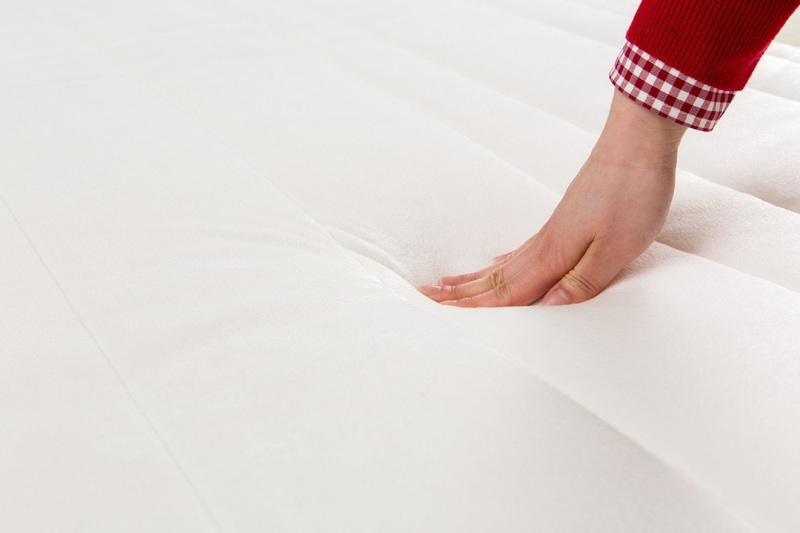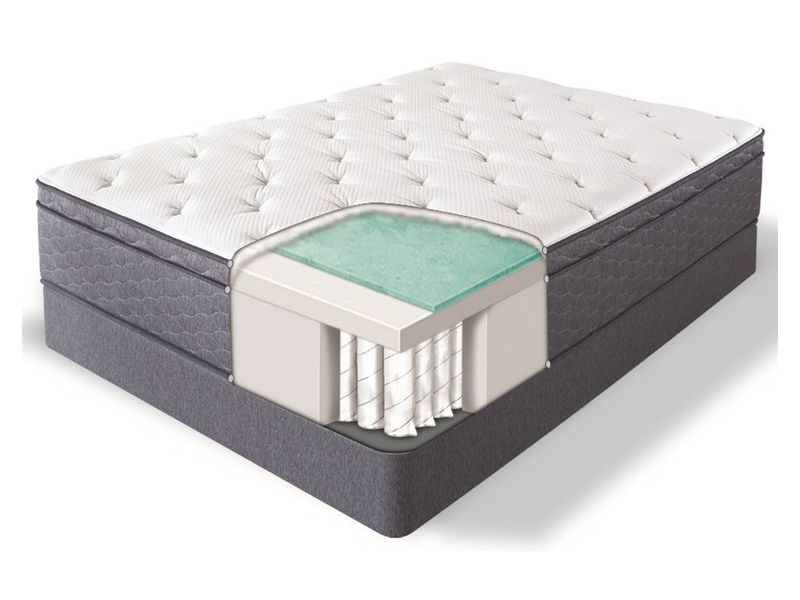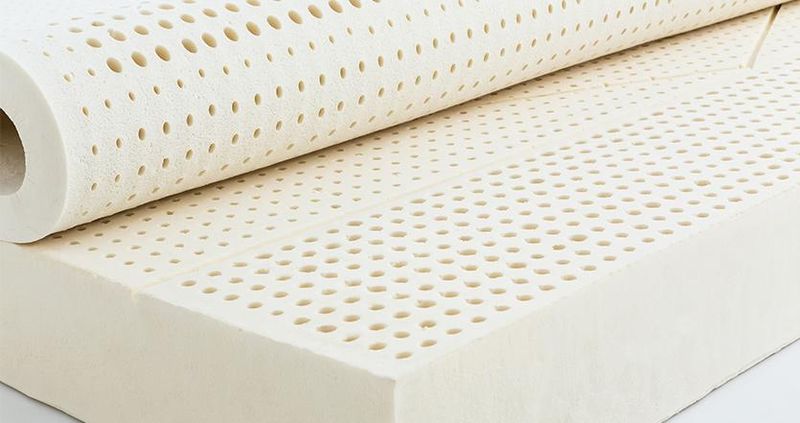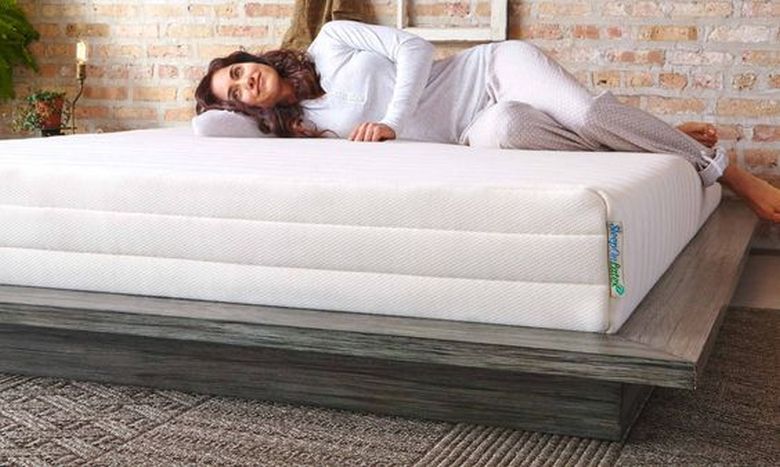Buying a new mattress is a decision that can literally change your life. The benefits of a good mattress are innumerable and will make a drastic improvement in the quality of your sleep. A good-night sleep is essential for both put physical and mental well-being and every care should be taken to enjoy it as much as possible. The foundation for this is a good bed.
Selecting a new mattress can be a daunting task. There are so many models on the market, each marketed as the best thing since the sliced bread. Getting through all those marketing gimmicks and determining which mattress is right for you is no mean task.
Add in the fact that they aren’t exactly cheap and you will spend years sleeping (or trying to sleep, if you don’t choose wisely) on it only adds to the pressure of choosing.
To help you with that process, we have gathered some tips that will considerably shorten it and make it easier. You can find more info on mattress-review.org.
1. Types of Mattresses

source:pxhere.com
There are several types of mattresses on the market today, each with its distinct advantages and disadvantages. Before making a decision, it is a good idea to familiarize yourself with them.
2. Memory Foam

source:whotome.com
Memory foam mattresses are a great solution for side sleepers. They will slowly adapt to the shape of your body and offer support for your shoulders and hips. The downside is that they are fairly expensive and get uncomfortably warm during the night.
3. Gel Mattresses
An improvement on memory foam, gel mattresses contain a layer of gel that will help with heat dissipation and keep you cool in your sleep. Not everyone enjoys the feel of gel, though, so you need to test it thoroughly before buying it.
4. Innerspring Mattresses

source:royalfurniture.com
The traditional and most common type of mattresses is innerspring or coil mattresses. They depend on coils to provide support and depending on the type, can have various levels of firmness. Also, various shapes of coils or innersprings can provide for different types of support. They tend to get uneven after a while.
5. Air Bed
Air beds have one definitive advantage over almost all other types. The amount of air in them can be adjusted, so you can control the firmness of the mattress. Some models even let you adjust each side separately, so you and your partner can have different settings. Top of the line models have an electric pump and a remote, so you can do all this while lying in bed.
6. Latex Mattresses

source:consumerreports.org
Latex mattresses use latex foam as filling. Since it is not as dense as memory foam, it heats less, but also doesn’t keep the form as long as memory foam.
7. Comfort Level

source:pxhere.com
Comfort can be a subjective category. Some people prefer harder mattresses, others softer. That is why it is important to test it and see in your new mattress works for you. Firmness, size, and materials all play a role in this, so try out several models before making a decision.
8. Firmness
Labels on the mattresses that state the firmness level can be misleading. Each manufacturer has its own system of labeling, so extra firm, soft, or medium can mean completely different things for each company. Even mattresses made by the same manufacturer can differ widely, despite what the label says. Think of them as suggestions only, not the definite judge on how firm a mattress really is. You have to test it and see if you are comfortable with it.
9. Multi-Zone Mattresses
Multi-Zone mattresses come in several forms. The basic ones have different supports on the edges and in the middle, where it is most important. It will provide firm support for your spine while being softer for your legs and ankles. The other type of multi-zone mattresses has two distinct halves, in case you and your partner enjoy different firmness. It is an ideal compromise in such situations.
10. Existing Medical Conditions
If you have any medical condition that can be affected by a mattress, like a neck or back injury, consulting with your doctor is a mandatory step in selecting a new mattress. They can recommend the type of mattress that will help you with your condition, significantly narrowing your choice and saving you a lot of time.
11. Consult Online Reviews

source:consumerreports.org
Online reviews are a great way of checking out a product without actually testing it. Mattresses are no exception and you can save yourself a lot of time and possible aggravation down the road by reading what other people had to say about any model that has caught your eye. The added bonus is if you can find people with a similar medical condition to yours and check their experiences.
12. Have a Budget
A good way of not overspending on a new mattress is setting up a budget you are comfortable with and sticking to it. Once you get to the store, it can be easy to spend more than you have originally planned, and some budget discipline will help you avoid those extra costs.
13. Watch Out for Marketing Tricks
Once you start the process of choosing your new mattress, you will be overwhelmed with words like “therapeutic”, “orthopedic”, “anti-allergic” and other similar terms. For the most part, these mean nothing and are only used as marketing gimmicks. There is no medical organization that tests the mattresses and issues certificates that back these claims. For all intent and purposes, you can safely ignore them and focus on other aspects.
14. Check Warranty
Regardless of how happy you are with your mattress, it won’t do you much good if it starts falling apart after a while. After all, a mattress isn’t something you buy every year and a long warranty period will give you peace of mind, even if you have to pay a little extra for it.
15. More Expensive Isn’t Always Better

source:pxhere.com
As with most things, price doesn’t always reflect quality. There are a lot of manufacturers out there who like to inflate their prices for no reason. Brand names are notorious for this. Just because something is a household name, that doesn’t mean it will suit you. Keep in mind that some brands are popular for a reason, though. A well-known brand is far less likely to make a bad product compared to some no-name company.
16. Firm Mattresses Aren’t for Everyone
We have been led to believe that a firm mattress is a universally good solution for everyone. That is not always the case. Many people will benefit from them, but they aren’t for everyone, especially extra firm ones. You need just enough firmness to properly hold your spine, but excessively firm mattresses can do more harm than good. They will create unnecessary pressure points and may even hurt your spine.
17. Trial Period and Return Policy

source:pxhere.com
A long trial period will allow you to get familiar with the mattress and make sure that you are completely satisfied with it without any risk. Sometimes, even if you have tested it thoroughly in the store, it just doesn’t feel the same after a few nights of sleeping on it. In such a case, returning it and exchanging for a different model will save you a pretty penny.

